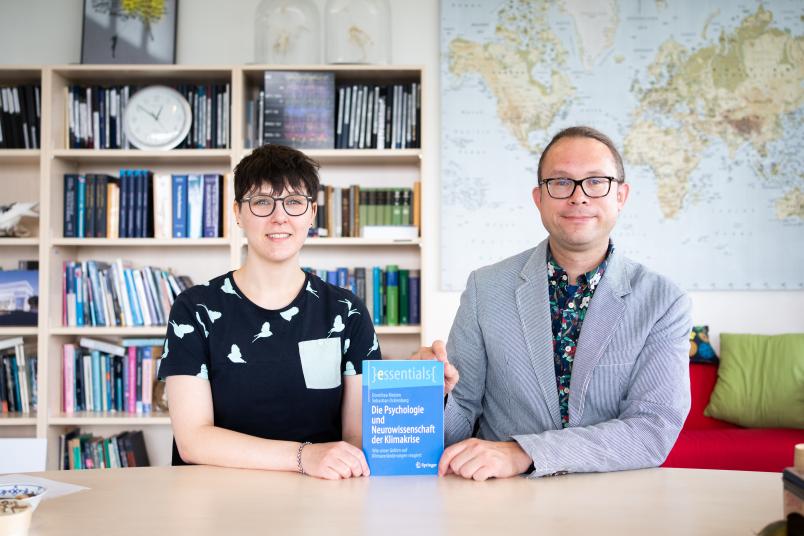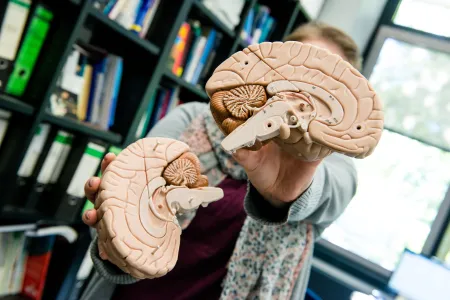
Psychology
Climate change and what it does to our brain and soul
Our brains can’t keep up with rapidly rising temperatures. Researchers urge the public health system to plan ahead.
Our brain has adapted to our habitat over thousands of years. If this habitat changes due to rapidly rising temperatures and the ensuing loss of ecosystems, human and animal brains will no longer be able to keep up. In their book “Die Psychologie und Neurowissenschaft der Klimakrise” (The Psychology and Neuroscience of the Climate Crisis), Dorothea Metzen and Professor Sebastian Ocklenburg from the Biopsychology Department at Ruhr University Bochum and the Medical School Hamburg outline the implications of these changes. In it, they integrate different branches of research in psychology and neuroscience. The textbook is published by the German publishing company Springer.
Environment affects brain functions
Our environment affects the function and development of our brain to a great extent: “Studies show, for example, that spending time in nature can help regulate stress networks in the brain – as opposed to spending time in the city,” Dorothea Metzen explains. If we are exposed to hostile environments for an extended period of time, for example in extremely cold regions such as the Arctic, our brain functions can change. “Preserving the natural spaces we have left is therefore crucial for the health of our brains,” Sebastian Ocklenburg points out.
Temperature is also an important environmental factor that has shaped ecological niches in the course of evolution. The brains of both animals and humans have adapted to certain temperatures. Rapid changes in average temperatures can result in the destruction of ecological niches, leaving no time for organisms to adapt. “For example, whale brains have a large number of cell types that are associated with the generation of heat in the tissues. These cells are essential for whales to survive in cold waters,” Dorothea Metzen says. “However, if the water temperature rises too much, whales don’t have any adequate mechanisms to reduce their body temperature.”
Heat waves and natural disasters
Climate change takes a massive toll on people’s health, both physically and mentally. Heat waves lead to an increasing number of heat-related deaths, while at the same time natural disasters such as floods and forest fires become more likely as the average temperature rises. All these phenomena also affect our mental health: heat waves prevent us from going about our daily lives, can limit our social life and lead to isolation. On top of that, increased outdoor temperatures in summer are associated with reduced sleep quality, which can affect mood, work performance and suicidal tendencies. Vulnerable groups include persons suffering from mental health problems, women and the elderly. Natural disasters can lead to depression and post-traumatic stress. People fleeing the consequences of the climate crisis are exposed to multiple stressors and health risks due to precarious conditions in refugee shelters, lack of access to healthcare and violence.
“What can we, as members of the scientific and health professions, actually do?” is the question posed by the authors. “We can make an effort to get the health system ready for the challenges ahead, because so far it’s not prepared at all,” Sebastian Ocklenburg says. “The impact of the climate crisis must be considered in public healthcare, science and teaching, because it is the greatest health risk and the greatest challenge of our time. We can make our voices heard in associations and societies to make politicians take actual action against the climate crisis, because prevention is the best way to protect the health of our fellow human beings.”
